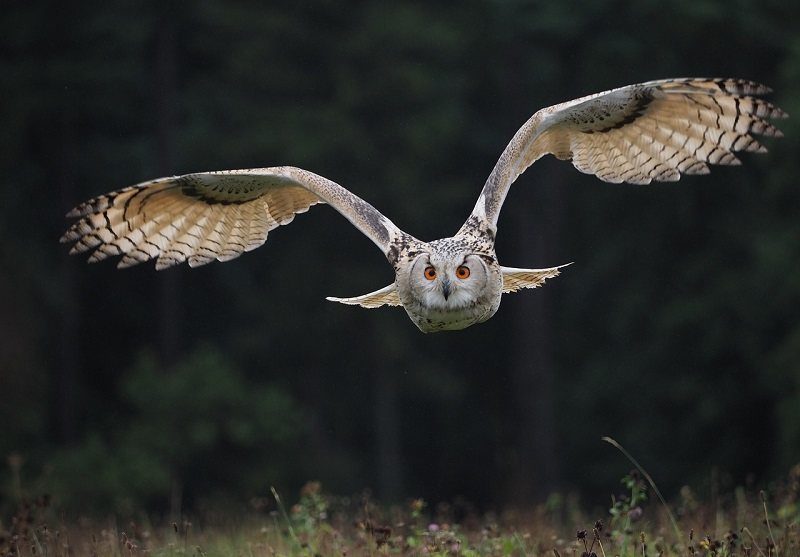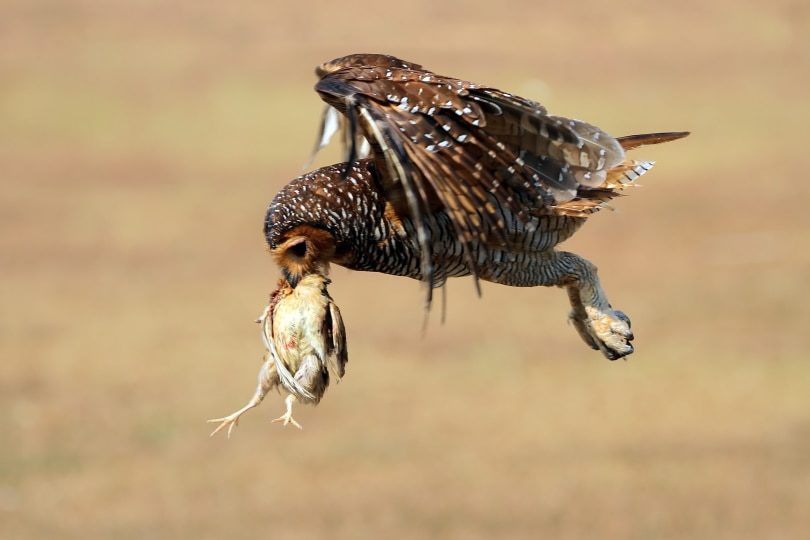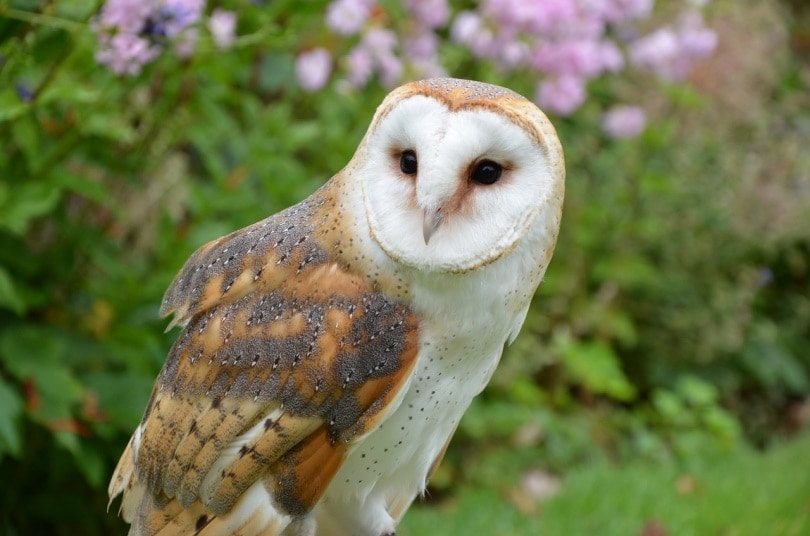Are Owls Raptors or Birds of Prey?
Last Updated on

We have all heard of “raptors” and “birds of prey.” These terms refer to the bird kingdom and help to identify birds that primarily eat other animals. Omnivorous birds like parrots that eat vegetation and animal protein are not considered raptors or birds of prey. However, birds like owls do hunt and kill their food exclusively because they are carnivores. So, are owls raptors of birds of prey? In fact, they’re birds of prey! Our guide below explores the difference and how owls have been classified.

Owls Are Birds of Prey
Many people consider raptors to be birds of prey. However, there is a difference between the two. Raptors tend to be active and hunt during the day. Birds of prey typically sleep during the day and hunt for their food at night. Since owls are nocturnal, they would be birds of prey. Also, it’s important to note that raptors are classified under the “birds of prey” term, but this is not true the other way around.
Two bird orders make up birds of prey. One order is called Falconiformes, which are considered raptors. More than 500 species fall into this category, including the hawk, the vulture, and the eagle. Owls are part of the second bird order, called Strigiformes, which are considered just birds of prey — not raptors. Both orders are known to have similar hunting methods, but they are not closely related or intertwined in any other way.

The Difference Between Raptors and Birds of Prey
Since raptors and birds of prey share many hunting traits, owls are sometimes referred to as raptors. The reference is easy to understand because the difference between raptors and birds of prey is minute. Birds of prey hunt at night and raptors hunt during the day. As birds of prey, owls have eyes in the front of their faces, unlike most raptors, which have eyes located on the sides.
Raptors do not have great night vision, whereas owls can find prey even when the moon is covered by clouds. Both raptors and birds of prey have an excellent perception of depth, which enables all birds under these two umbrellas to excel at hunting whether it is day or night. Owls can turn their heads many more degrees left and right than the typical raptor can.
Birds of Prey Are Important to the Ecosystem
Birds of prey like the owl are essential parts of a healthy ecosystem. They work to keep insect and rodent populations in check so said populations do not overrun their environments and turn their ecosystem into a food desert. Controlling prey species on the ground helps maintain healthy vegetation too. Without birds of prey in existence, our own homes may become overrun with rodents.


In Conclusion
When all is said and done, owls are birds of prey, but they are not raptors. However, raptors are considered birds of prey. An easy way to refer to any of these birds is to call them predators. Both raptors and birds of prey use their sharp talons and beaks to take down their prey, but they hunt at different times of the day. Even though owls are predators, they are beautiful animals that any human would be lucky enough to examine in the wild.
Featured Image Credit: ElvisCZ, Pixabay
About the Author Rachael Gerkensmeyer
Since 2000, Rachael has been a freelance writer, and has had an opportunity to research and write about many different topics while working to master the art of fusing high-quality content with effective content marketing strategies. She is an artist at heart and loves to read, paint, and make jewelry in her spare time. Rachael is obsessed with helping animals in need both in her community and anywhere in the world where she feels she can make a difference. She lives off the grid in Hawaii with her husband, her garden, and her rescue animals including 5 dogs, a cat, a goat, and dozens of chickens, so it's no surprise that animals happen to be her favorite topic to write about!
Related Articles:
How to Clean a Refractor Telescope: Step-by-Step Guide
How to Clean a Telescope Eyepiece: Step-by-Step Guide
How to Clean a Rifle Scope: 8 Expert Tips
Monocular vs Telescope: Differences Explained (With Pictures)
What Is a Monocular Used For? 8 Common Functions
How to Clean a Telescope Mirror: 8 Expert Tips
Brightfield vs Phase Contrast Microscopy: The Differences Explained
SkyCamHD Drone Review: Pros, Cons, FAQ, & Verdict
